Verdict
The Hyundai Bayon isn’t the most spacious small SUV, although boot space is good, but it’s a rounded package that rides well enough and offers a punchy, electrified powertrain that helps performance and efficiency. On this early first drive of a European-spec car, it seems like it could be a contender in the crowded compact crossover class.
Small SUVs are a big selling niche, and while Hyundai has its Kona compact crossover, there’s still room in the line-up below this for an even smaller model, the Korean firm believes.
Hence this, the Hyundai Bayon. It’s an i20-based small SUV to rival the likes of the Ford Fiesta-based Puma, and it certainly has presence thanks to the car’s funky styling, with the large grille and narrow running lights that are rapidly becoming a trademark of Hyundai’s SUVs.
It therefore means the Bayon shares some styling cues with the larger Hyundai Tucson SUV, which is no bad thing at all.
The entry point to the line-up is a 99bhp 1.0-litre three-cylinder petrol turbo in the UK, as with the i20 range, but it’s the more powerful 118bhp 1.0-litre unit we’re trying in European spec - both feature 48-volt mild-hybrid technology to improve efficiency.
This most powerful engine is mated to a six-speed intelligent manual transmission, where there’s no mechanical link between the clutch pedal and the clutch disc. It means the engine can disengage automatically while still in gear and even cut out, with the mild-hybrid system’s small lithium-ion battery providing enough power for the electrically assisted steering and other functions. It helps reduce fuel consumption, above all else.
The engine pulls smoothly, with a decent spread of torque and enough performance for a small SUV, completing the 0-62mph sprint in 10.4 seconds. You’d never know the clutch pedal wasn’t physically linked to the gearbox as it’s still easy to pull away and the engine cuts back in smoothly.
It’s similar to the i20 supermini in how the powertrain operates, which means it has few vices, a good spread of power delivering adequate performance, and enough refinement. The way the Bayon rides and handles is well-rounded too, offering enough comfort for a small SUV.
Inside, the Bayon is not dissimilar to its supermini sibling either, with a digital instrument cluster and a large central infotainment display on the dash.
It’s 4cm taller than the i20 though, so access is noticeably easier, as you’d expect, although space in the rear is a little more limited. As a result taller adults might find it a bit cramped back there on longer journeys. However, boot space is very fair for the class, at 411 litres.
| Model: | Hyundai Bayon |
| Price: | From £19,500 (est.) |
| Engine: | 1.0-litre 3cyl turbo petrol |
| Power/torque: | 118bhp/175Nm |
| Transmission: | Six-speed manual gearbox, front-wheel drive |
| 0-62mph: | 10.4 seconds |
| Top speed: | 114mph |
| CO2: | 119-131g/km |
| On sale: | Summer 2021 |
from Sitewide RSS feed https://bit.ly/3dgE2py
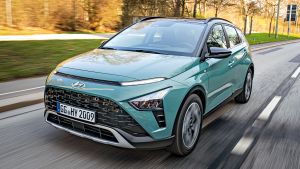
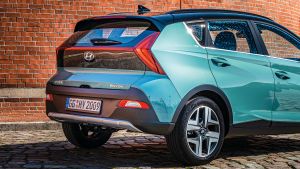
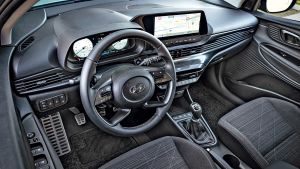
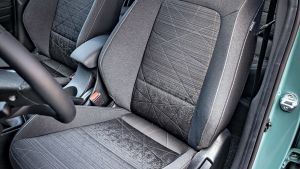
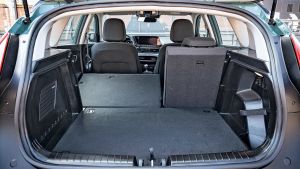
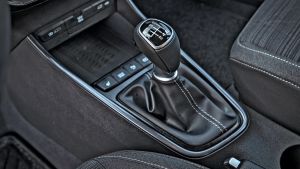
Comments
Post a Comment